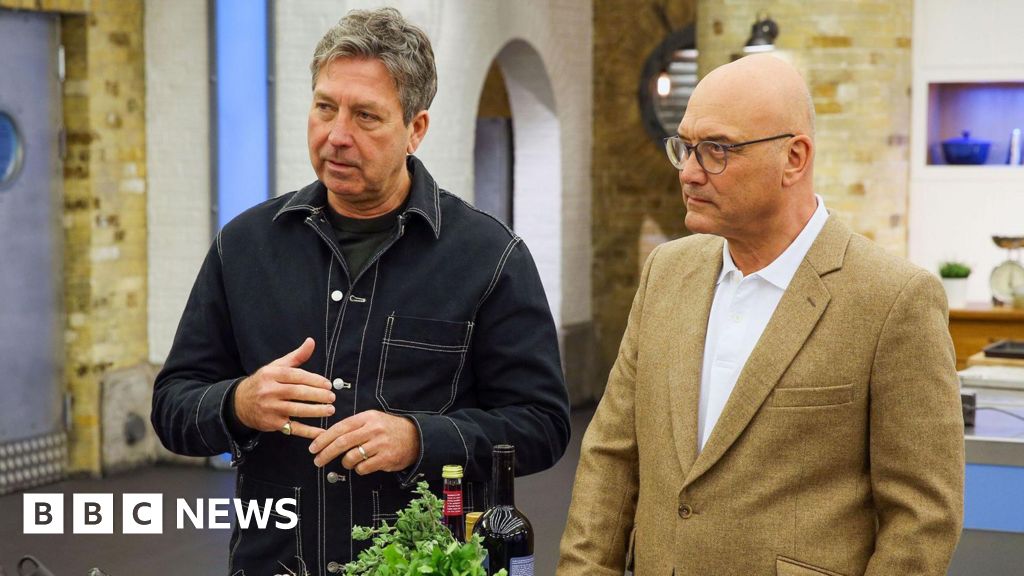Fall in viewers for Wallace and Torode's last MasterChef

MasterChef Viewership Declines Amidst Controversy Surrounding Hosts
The latest series of MasterChef has premiered on BBC One, drawing just under two million viewers for its opening episode. This marks a notable decrease compared to last year's launch, which garnered approximately 2.7 million viewers. The decline comes after a turbulent period for the show, marked by the dismissal of long-time hosts Gregg Wallace and John Torode following allegations of misconduct. While the BBC opted to air the pre-recorded series to honour the participating chefs, the decision has been met with mixed reactions from critics and viewers alike.
Lower Viewership Figures Amidst Backlash
Overnight figures revealed that the launch episode attracted 1.96 million viewers, a significant drop from the 2.73 million who tuned in for the previous year's premiere. While terrestrial television viewing figures are generally declining year-on-year, the context surrounding this particular series has undoubtedly influenced audience reception. Factors such as different broadcast times and the time of year (August typically sees lower viewership) also contribute to the variation, making direct comparisons challenging.
The controversy surrounding Wallace and Torode's conduct has cast a long shadow over the new series. Both presenters were dismissed last month after an internal report by production company Banijay substantiated allegations against them. The BBC's decision to proceed with airing the pre-recorded episodes, while intended to support the participating chefs, has drawn criticism from some quarters, including broadcasting union Bectu, who voiced concerns about the potential impact on individuals who had filed complaints.
Editing and On-Screen Dynamic Under Scrutiny
Ahead of the premiere, speculation arose regarding potential re-editing of the episodes to minimize the presence of Wallace and Torode. While both presenters remain visible throughout the episodes, some observers have noted a perceived reduction in jokes and banter between them and the contestants. Media outlets have highlighted this shift, with some critics suggesting that the editing process has resulted in an awkward and less engaging viewing experience.
Ed Cumming, television critic for The Telegraph, commented that the BBC appeared to have "edited out their jokes" as a consequence of the allegations, resulting in a series that "lacks pizzazz." Vicky Jessop of The Standard echoed this sentiment, suggesting that the production team may have been cautious about any potentially misconstrued remarks. The Independent's Nick Hilton described the series as having a "strange, bitter aftertaste," reflecting the overall sense of unease surrounding the broadcast.
Expert Analysis: Impact on Brand and Future of Culinary Programming
Dr. Eleanor Jones, a media studies professor at the University of Westminster, believes the situation highlights a broader challenge for entertainment programming in the age of #MeToo. "The MasterChef brand is built on the on-screen chemistry of its hosts," she explains. "When that dynamic is compromised by off-screen controversies, it inevitably impacts viewership and the overall perception of the show. The BBC has attempted to navigate a difficult situation by airing the pre-recorded episodes, but the negative publicity has clearly taken its toll. This incident serves as a cautionary tale for other broadcasters, emphasizing the importance of robust vetting processes and clear codes of conduct for on-screen talent."
Adding to this perspective, food critic and culinary historian, Leo Benedictus, notes the potential for the show to evolve. "MasterChef has been a television staple for decades," Benedictus says. "While the immediate impact of this controversy is undeniably negative, it also presents an opportunity for reinvention. The BBC could use this moment to diversify the hosting lineup, explore different culinary perspectives, and ultimately refresh the format for a new generation of viewers. The future of culinary programming lies in authenticity and inclusivity, and MasterChef has the potential to lead the way."
Background: Misconduct Allegations and Repercussions
The controversy surrounding MasterChef originated with allegations of misconduct against Gregg Wallace, which were first reported by BBC News. An internal investigation conducted by Banijay revealed that 83 complaints had been filed against Wallace, with over 40 being upheld. These included allegations of unwelcome physical contact and inappropriate behaviour. Wallace has maintained that he was cleared of the most serious allegations, expressing regret for any hurt caused. The upheld complaint against John Torode related to the alleged use of a racist term on set in 2018. Torode stated that he had "no recollection" of the incident and that any racist language is "wholly unacceptable".
Looking ahead, Anna Haugh will replace Gregg Wallace in the final episodes of the current series, marking a new chapter for the show. The BBC faces the challenge of rebuilding trust with viewers and ensuring a safe and respectful working environment for all involved in the production of MasterChef.
Originally sourced from: BBC Entertainment
